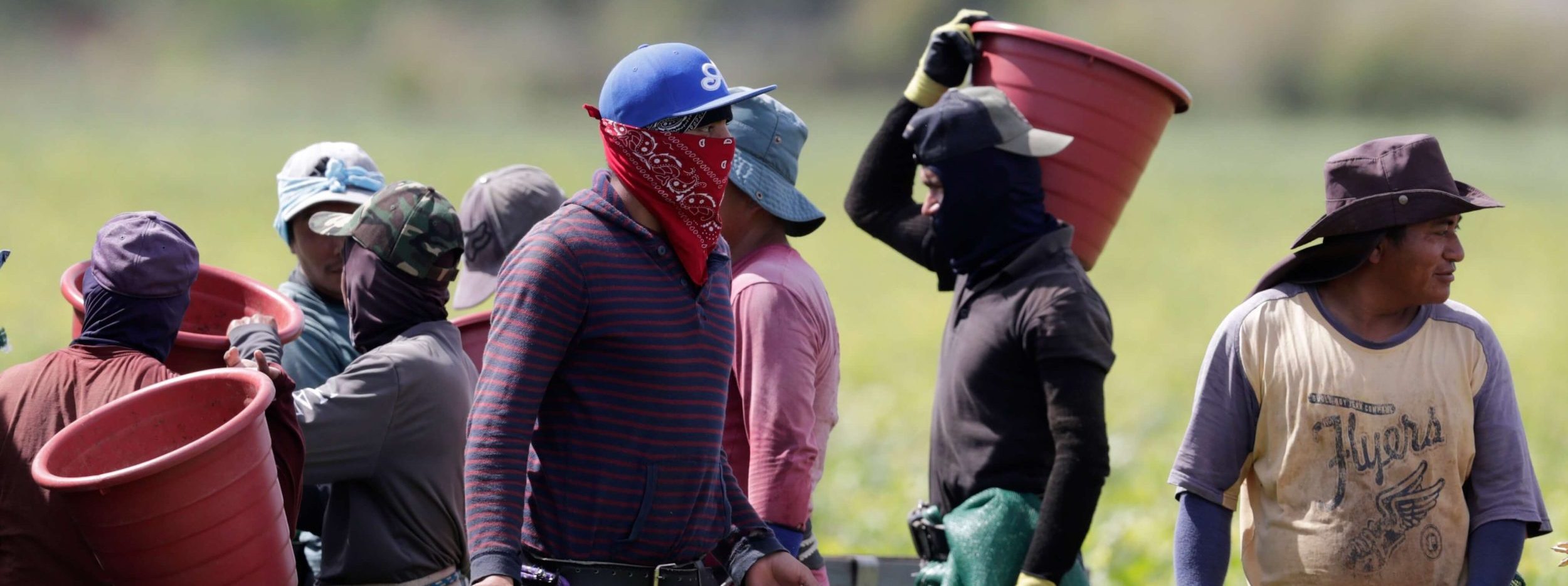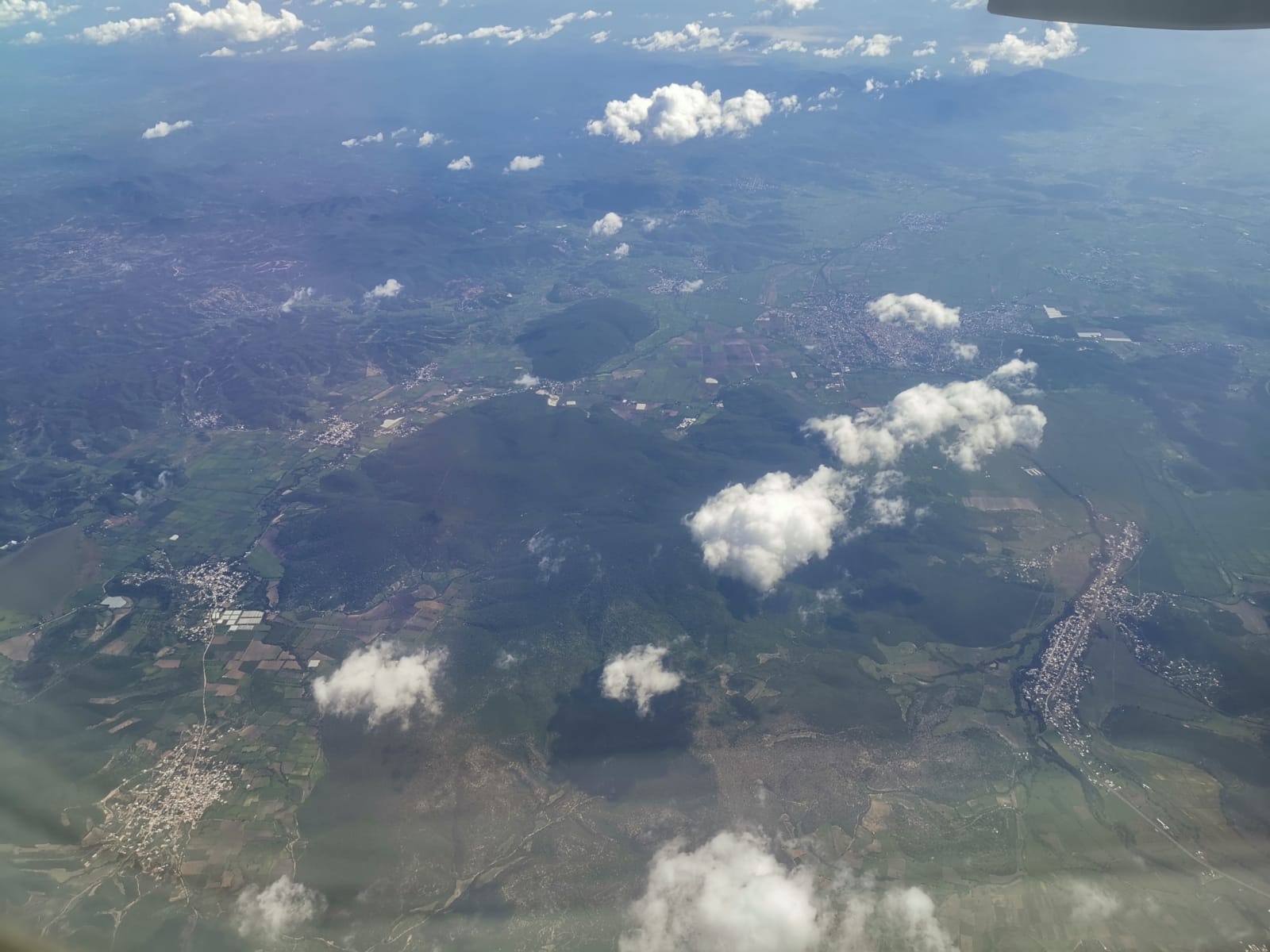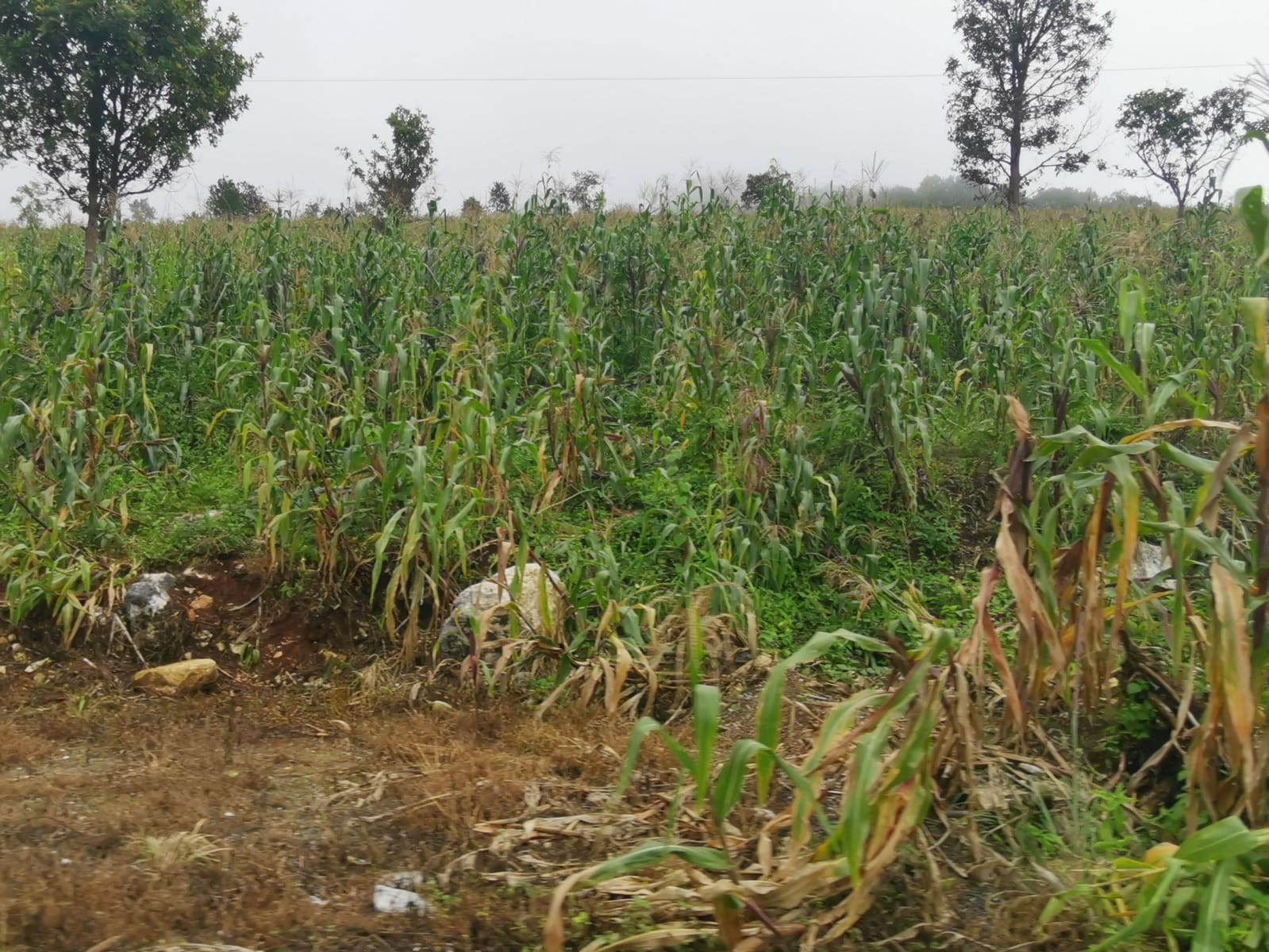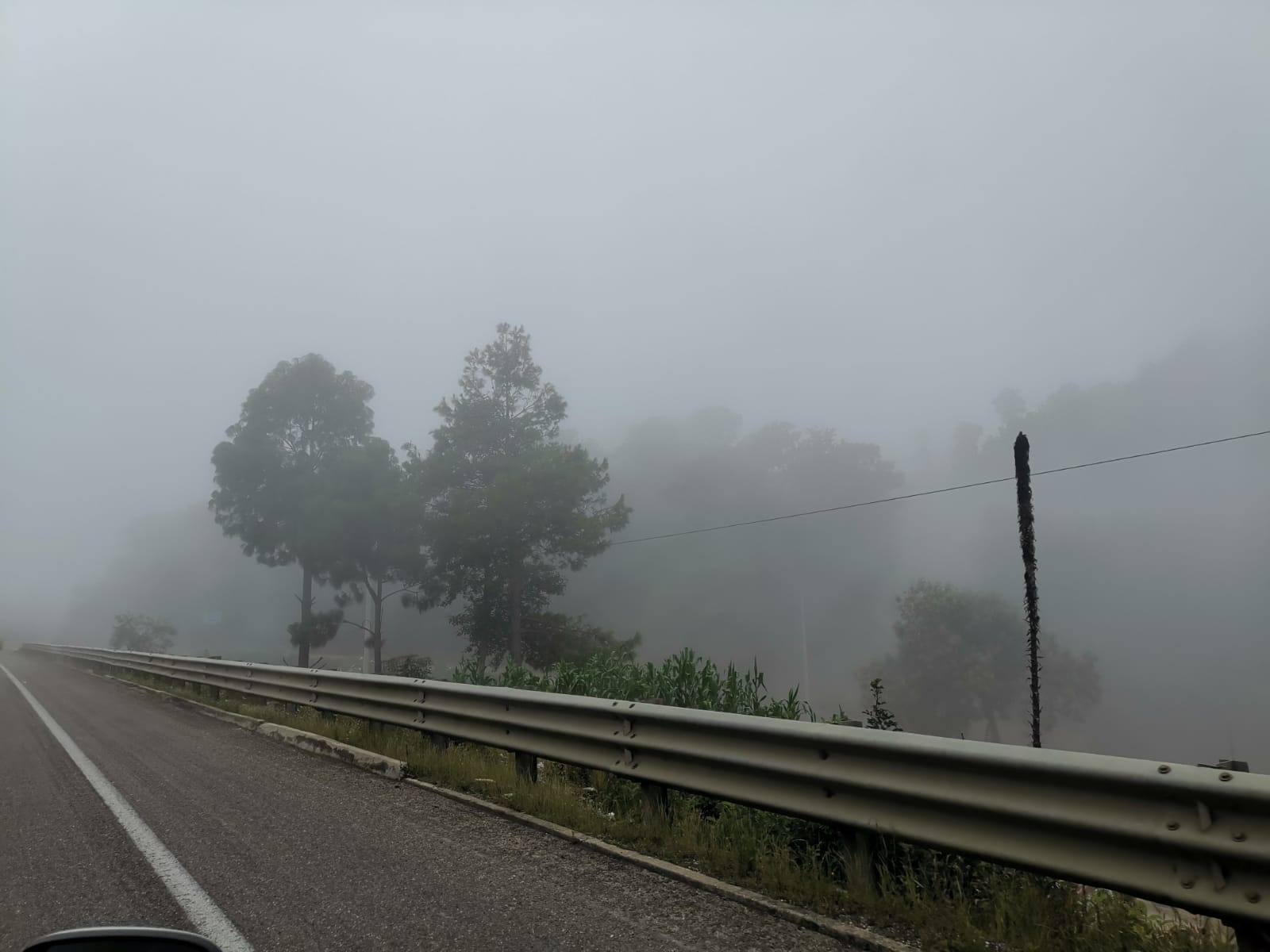
Reporter’s Notebook
He was recruited in Mexico to work in the U.S. for six months. He hasn’t seen fis Family in five years
Table of contents
The first time I spoke to Valeria, I heard her sweet, kind voice, unsure of the information she could share. We texted for a month. Her husband Diego helped me convince her to talk.
For several hours, I traveled to encounter her. We finally met in September 2022 at her house in a city in southeast Mexico.
In the region where Valeria lives, the air smells of wet earth, especially at dawn. The nights are very humid and cold. The mist descends, giving a magical, almost mystical air to its streets and parks.
Valeria opened the door for me with a big smile on her face. Her two children were in the house, a 9-year-old girl and a 4-year-old boy. The little boy immediately pulled me by the hand and introduced me to his kittens playing all over his house. He told me their names. He explained that one was his and the other was his sister’s. The girl was standing over a stool reaching the stove, helping her mother make pancakes for breakfast.
When the food was ready, the children sat down to eat breakfast. While they ate, they watched the movie Kung Fu Panda on the television and laughed out loud.
I took advantage of when the children were busy to ask Valeria about her husband, Diego. Her eyes instantly filled with tears. She said that she misses him a lot, that she feels the emptiness that he left in their lives and that it hurts her a lot not to be by his side.
For months Valeria feared for her life and that of her children. In 2018, Diego obtained an H-2A visa and traveled to the United States to pick blueberries on a farm in North Carolina. They both decided this would be a way to earn more money and improve their family’s finances. Diego escaped from the farm where he was working just a few weeks after arriving in the U.S. There, he lived in unsanitary conditions and suffered labor exploitation.
Shortly after escaping, Diego received a call from the person in Mexico who had recruited him to work on a farm in the U.S. Valeria remembered Diego’s words when he called her. “It was a threat,” Diego said. “I mean, you can leave but then face the consequences.”
She was in a more vulnerable position than her husband. Valeria lives in Mexico, cares for her eldest daughter, and was pregnant with her youngest son at the time. Because of that fear, both husband and wife asked us not to use their real names in this investigation. We named them Diego and Valeria.
Diego is one of the thousands of farmers from Mexico who traveled to the U.S. as part of the H-2A program. He is also one of the thousands who has been a victim of abuse and wage theft. Those who employ them are required to comply with specific conditions. In reality, many employers threaten their workers with deportation if they don’t do everything they ask. They agree to live in terrible conditions and with much less salary than they were promised.
I recorded my interview with Valeria in her daughter’s room. On a wooden piece of furniture, there is a photograph of her little girl with Diego. In 2018, when he went to the United States, everyone in the family believed they would only be apart for six months. Since then, he has not been able to return to Mexico. He decided to stay in the U.S. and fight for a special visa for migrants who have been victims of human trafficking.
The daughter treasures that photo with her dad. First, she showed it to me with a big smile. Then, she began to cry. She smiled and tried to contain herself. She told me how much she missed her dad. The day the photo was taken, they had gone to the town fair, rode on the carousel and had a great time.
The girl was trying to calm down. Almost in a whisper, without looking up from the photo she was holding, she told me: “I just want to be with my dad.”
Her younger brother was watching her. He put his little hand over hers and squeezed. The boy and his dad have never seen each other in person. Since he was born, they have only spoken by video call. He also told me that he longs to meet Diego.
For Valeria and Diego, being apart was a difficult decision. When Diego found out that she was pregnant, he also received the news that his recruitment was approved to work in the U.S. So, both of them had to decide if he would travel to another city in Mexico to apply for his H2-A visa.
Valeria took the lead. “It was standing in front of him and telling him: you know what, go, don’t worry,” she recalled.
The day her youngest son was born, Valeria was shopping. “It was very funny,” she told me, laughing. It was the weekend when stores announced their best deals of the year in Mexico. Diego had managed to send enough money for her to buy a new washing machine and a mattress, which she would need with the new baby.
When the contractions began, Valeria was in the supermarket with her mother and daughter. They had just bought the washing machine and the mattress. They needed to pay and wait to receive the warranty paperwork.
Her mom immediately noticed that Valeria was not feeling well. She wanted to go with her to the hospital, but Valeria told her to stay. Someone had to carry the items because the man who would help them with transportation was already arriving.
Valeria called Diego. She told him her mother and daughter would wait to pick up the shopping. She would go to the hospital to have her child. She got in a taxi. Unable to do more, Diego said: “You tell (the taxi driver) to go slowly.”
Valeria recounted the scene laughing out loud. “Are you okay?” the taxi driver asked. “My baby is about to be born,” she replied. The man got very scared. He drove fast, careful not to hit potholes, a staple of the battered streets of poor southern Mexican cities.
After a couple of hours, Valeria called Diego again, now with the baby in her arms. That was how Diego and his son met. And how they have kept in touch. They have not even been able to hug once.
All her life, Valeria has lived in the same region. There she also met Diego in a bakery where they both worked. They were poor. At first, they lived with Valeria’s mother in a humble house made of sheet metal and wood.
Diego’s primary goal, Valeria said, was to give her and her children a better place to live. And he did. Almost all the money he has earned working in the U.S. has been sent to her to build a house on land donated by her family.
Now they no longer have to all sleep in the same small room, where the cold seeps in. The couple and the children have their own room with their bathroom. There is space for children to run and play. The house is made of brick, no longer metal and wood. It has two floors, running water, electricity and appliances.
Valeria usually takes the children downtown so they can run in the park. She buys them cotton candy. They run through the trees; they chase doves while she observes them. Valeria is very happy in her country and among her people. She also wants to soon be with her husband in the U.S.
The legal process he is following allows them to join him in the U.S. as a family. Valeria knows it will be challenging for her and her children because of cultural and language barriers. On the contrary, the children were unafraid and told me they wanted to leave.
All that remains is to wait, enjoy what they have now, and talk to Diego every afternoon. During my days with them, I witnessed several of those calls. Diego greeted them, smiling from the other side of the cell phone screen. Meanwhile, the children stood behind Valeria and fought among themselves so that their faces could also be seen on the screen and they could greet their father.
A few blocks from the park where Valeria plays with her children is the parking lot where men like Diego gather, ready to board buses and leave for the United States. There they take their bags and begin a long journey north. Many of them do not know the precarious conditions they will face.
A local reporter told me these trips are an open secret in town. Everyone knows that these men are going north and that the local recruiters decide who will go, although no one answers who these recruiters are, how to contact them, or where.
In the establishments where the procedures for H-2A visas are offered, some people monitor all day. They vigorously watch anyone who dares to question. They’ll give you information if they think you’re a candidate for temporary work in the field. If they believe you’re doubtful, just asking questions, they’ll tell you they don’t know anything, and you are in the wrong place.






